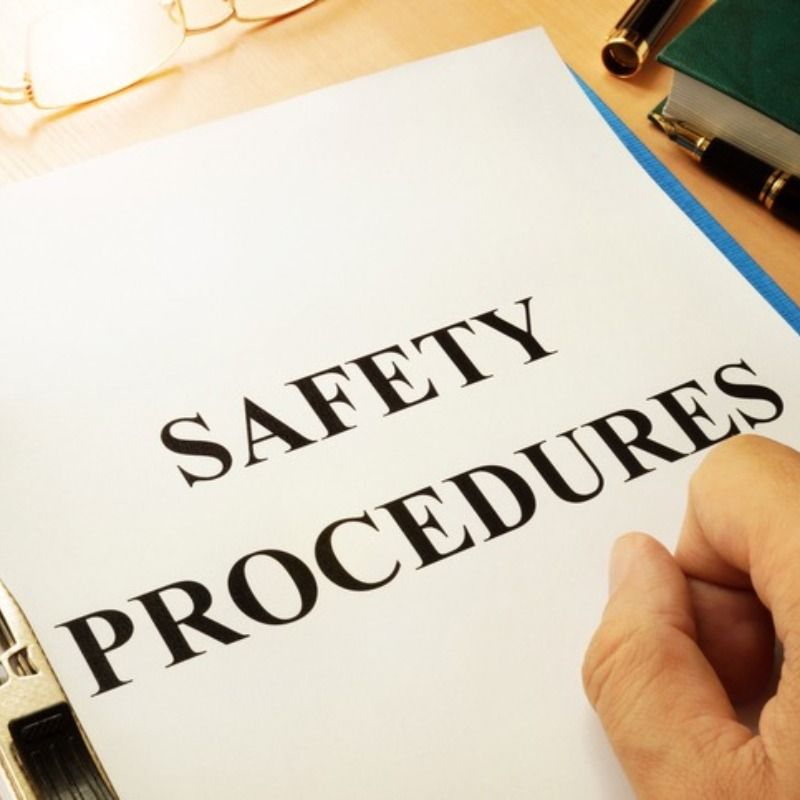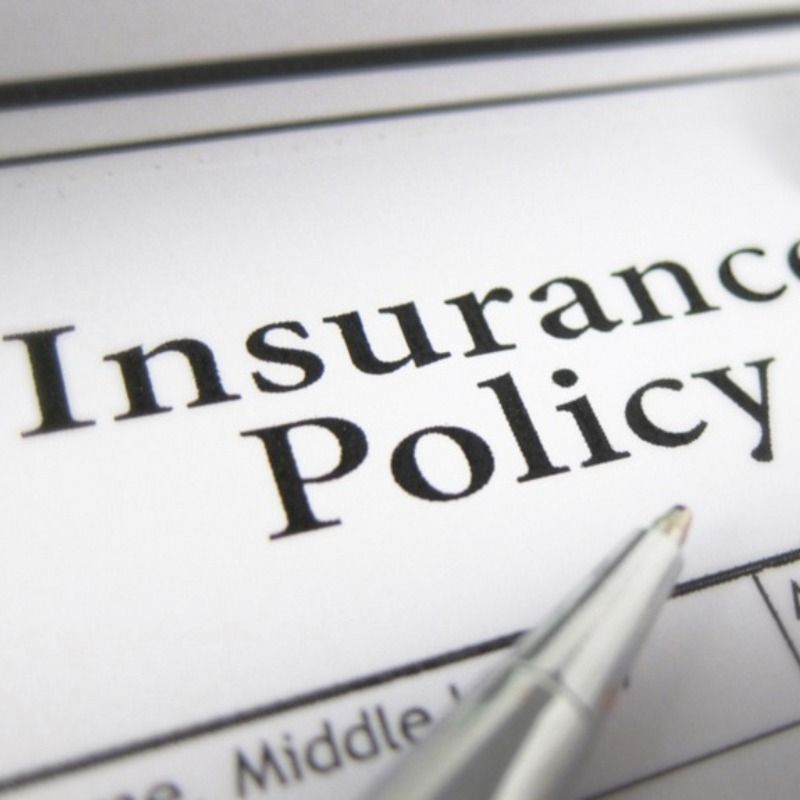BLOG

If your organization has elected to carry Workers' Compensation insurance, there are certain factors that will determine how much you'll pay for the coverage. Frequent claims will cause a significant increase in your premiums. If your company qualifies for an experience modification, adjustments will be made to your annual premium based on your past three years of claim activity - the more activity, the higher your premium. Carriers will also look at how well your organization is managing its operations. While claim activity is usually out of your control - accidents happen - there are some things you can do to help show your carrier you deserve a lower rate on your Workers' Comp premiums: Offer health insurance, which may deter employees from using Workers' Comp as recourse for not having a health plan. Keep up-to-date OSHA logs with specifics about work-related injuries and illnesses. You should record when a work-related event or exposure causes or contributes to a condition or aggravates a pre-existing condition. Record deaths, loss of consciousness, days away from work, restricted work activity or job transfer, medical treatment beyond first aid, and injury or illness diagnosed by a physician or other licensed health care professional. This includes but is not limited to cancer, chronic irreversible disease, a fractured or cracked bone, or a punctured eardrum. Organize a formal safety program, put it in writing, and conduct safety meetings. Invest in an accident investigation program. Outline and post consistent instructions for any required safety equipment such as ear plugs for high noise or safety goggles. Utilize your carrier's loss control surveyors by asking questions about ergonomic testing or additional materials or websites recommended to improve safety. Spend some time talking to us about your Workers' Comp insurance and you may be able to spend less on your premiums! Post authored by Joi Garcia. Originally published February 21, 2014. View original post at: http://wp.me/p1Iv7E-1mW Products underwritten by Central Mutual Insurance Company and affiliated companies. Copyright © 2016 Central Mutual Insurance Company . All rights reserved.

I recently read an article that reiterated how important it is for individuals who operate home-based businesses to be properly protected. In short, the article detailed how a participant in a Zumba class (which happened to take place at a fitness club ) suffered a stroke during the class. The instructor filed a claim with her homeowner policy and the claim ended up being denied. The case ended up going to an appellate court in Arizona (which is where the situation occurred) and the jury found that the instructor’s activity at the club constituted “a trade, profession or occupation,” even though she was teaching on a very limited basis. This in turn affirmed the exclusion in the instructor’s homeowner policy that pertains to business activities. The exclusion for business activities is something you will find in all homeowner policies, so it’s very important for anyone who operates a home-based business – no matter where the business is actually conducted – to obtain the appropriate liability insurance coverage. As a general rule of thumb, if you’re engaged in a business where you earn more than $2,000 per year, you should consider obtaining a commercial general liability policy or a business owners policy (which will provide property coverage for your business property in addition to covering your business liability exposures) but the actual nature of your business may dictate otherwise so be sure to discuss with your local independent insurance agent. Keep in mind that property coverage provided by your homeowner policy could also be in jeopardy if you are operating a business out of your home (this includes selling Mary Kay, AdvoCare, etc.). For example, homeowner policies contain specific “other structures” exclusions pertaining to business operations, so if you’re conducting a business activity out of a detached garage, shed, or barn, you might find yourself with no insurance coverage if that “other structure” is damaged or destroyed. When in doubt, speak with your local independent insurance agent to learn more about how you can properly protect any property and/or liability exposures associated with a business you operate. Earning a little extra money on the side is great… until you realize you have no insurance coverage for it. Thanks to Central Insurance Companies for the article. Posted on May 19, 2017 by Marc McNulty, CIC, CRM

DO YOU OWN A SHORT TERM RENTAL? Then this article is for you. Finally proper insurance to cover your rental. Our team at Brock can walk you through the options and help you choose the right coverage for your rental or rentals. Whether its the whole house, cabin, condo, town home or room we've got you covered. Not sure what needs to be covered or why. Contact our rental specialist John Brock today to protect the rental and yourself. FAQ What is considered short-term renting? In the insurance world, a property that is rentedfor less than 30 days at a time is typically considered short-term. A property in which therenter does not reside/live at the dwelling. Why does my homeowner's policy not cover my short-term rental? All homeowner'spolicies carry a "business activity exclusion". In other words, any claim involving a"business activity" could rightfully be denied. Is my short-term rental really a business? Yes. More and more cities like Austin, SantaBarbara, and Chicago are now requiring short-term rental owners to carry and pay for abusiness license. Note: Starting Feb 2015 in San Francisco Airbnb Hosts will be required topay 14% hotel tax and carry $500,000 in liability coverage. How do I get covered for business activity? You buy a business insurance policy. TheProper Insurance policy is a business policy. It covers your business property(rental home/contents), business liability, and the business income it generates. If I insure my short-term rental as a business, can I also stay there? Yes. There are nostandard occupancy restrictions on a business policy. This means the property is insuredwhile you stay there, friends or family, and of course paying guests. My short-term rental is also my primary residence, can I still purchase the ProperPolicy? Yes. If the short-term rental home is also your primary residence, Proper simplyadds $1,000,000 in personal liability and $50,000 in loss of use to relocate in the event theproperty is being rebuilt. This is very important if you do not carry a homeowner's policyelsewhere. What if I also live at the short-term rental, can I still purchase the Properpolicy? Yes. You have the same business exposure. We see every scenarioimaginable. You live upstairs and short-term rent the downstairs. You live in the main home and rent out the guest house, etc. If I have the Proper policy do I keep my homeowner's or landlord policy in place? No. TheProper policy is designed to fully replace the current coverage you have. You wouldcancel your current policy. FAQ provided by Proper Insurance

When underwriters think about risk, perilssuch as fire and theft come to mind. One risk that can be overlooked isimproperly underwriting multiple named insureds. This article will discuss theimportance of underwriting named insureds. A key element on any commercial insurancepolicy is the named insured. A named insured can be defined as “any person,firm, organization, or any of its members specifically designated by name as aninsured(s) in an insurance policy.”[i]The named insureds are listed on a policy’s declarations page. We shouldremember that named insured status provides full coverage under the generalliability policy. Consequently, it is vital that we understand all of theoperations of any named insured listed on a policy. With just one named insured, this is simple.The underwriter assesses the named insured’s operations and then decides toeither accept or decline the risk. However, with multiple named insureds, thisprocess gets more involved. If you have more than one named insured on apolicy, then we have a first named insured. The first named insured mustexercise management control over all of the other named insureds on the policy.To justify adding additional named insureds to a policy, the underwriter mustreview the following: First, does the new named insured have an insurableinterest? That is, is there an ownership interest that justifies adding thisnamed insured to the policy? In particular, are we comfortable with the newnamed insured’s operations? Moreover, we need to determine if the namedinsureds are combinable. To be combinable, the entities should have commonmajority ownership. This means one named insured owns more than 50% of theother named insureds. Or more than 50% of each named insured is owned by thesame majority owners. In summary, if there is a valid insurable interest foradding newly named insureds, the named insureds are combinable and the firstnamed insured exercises management control over the other entities, anunderwriter can feel comfortable adding these additional named insureds. What is the problem if you add a named insuredto a policy that doesn’t meet this criteria? It can create a conflict ofinterest. You could encounter what is known as cross-liability. This means oneinsured suing a party who is also an insured on the same policy! This canhappen under the principle of severability of interests; that is, liabilitycoverage is provided separately to each insured. In short, poorly named insuredunderwriting can lead to a conflict of interest and litigation betweendifferently named insureds. Named insured underwriting is a critical task.The underwriter wants to make sure the additional named insureds have aninsurable interest, these entities are combinable, and that the first namedinsured is exercising management control. Failure to do so can lead to aconflict of interest or possible litigation among the entities. In short,underwriters must always carefully underwrite their named insureds. Resources: [i]International Risk Management Institute GlossaryOf Insurance And Risk Management Terms 10th edition 2006Page 162 Postauthored by Alex Plotkin. Originally published June 20, 2018. View original post at: https://wp.me/p1Iv7E-2L9 Products underwritten by Central MutualInsurance Company and affiliated companies. Copyright © 2018 Central MutualInsurance Company. All rightsreserved.

WHAT MATTERS MOST? One critical issue that Americans tend to overlook is long-term care planning. Consider the impact that a future long-term care event could have on you and your family. As we get older, there's a chance we will need help with extended health care, care that is most often not covered by Medicare or other health insurance. This kind of care is most often referred to as Long-Term Care. Talk to you family about this and consider the below. - What is your plan for health care when you consider living out your retirement years? - How would a long-term health care need impact your family? Will you family step in if care is needed? Do you want them to? - What is long-term care and how much does it cost? - Could you self-insure some or all of the additional cost of this type of medical care? - Where do you want your care? Our choice of Home, Moving in with family, Adult Day Care, Assisted Living Facility and Nursing Home. We believe you will be happy to hear that today most care is received at home. We know this is a difficult topic to consider, and no one wants to contemplate a day that they may need physical help. Consider though that the right time to plan for this is now while you are independent and healthy. Rem Cooper

When discussing and rating homeowner insurance policies, personal liability coverage is often an afterthought. Insurance companies and insurance agents don’t always take the time to explain what it is and what it covers. Don’t fall into the trap of thinking personal liability coverage isn’t important. It most certainly is! For starters, let’s look at the types of claims that are potentially covered by this part of the homeowner insurance policy: bodily injury claims and property damage liability claims. It is quite common to see personal injury coverage added to personal liability coverage via endorsement, as well. For the sake of discussion, we will include personal injury coverage with the other liability coverages we mention. So, what exactly does this cover? Let’s say you attend a concert or sporting event and as you are leaving your seat you accidentally trip someone. The person suffers injuries resulting from the fall down the stairs. This could result in a bodily injury liability situation. Or, let’s say you have guests over to your home and your dog becomes spooked and nips at the hand of one of the guests. Provided your homeowner policy doesn’t have a dog bite exclusion on it, this would potentially be a covered bodily injury liability claim too. Now let’s move on to the property damage component of coverage. This isn’t coverage for your property. Rather, it covers damage to someone else’s property that you or your family members cause. For example, if your child accidentally hits a baseball or golf ball through the neighbor’s window, that would be considered a property damage liability situation.

BRIDGING THE GAP: COMPANY CAR COVERAGE AND PERSONAL USE Many employees drive company cars for their work-related duties. But what if the company car were your only car? Even as an employee of the company, it's likely you are not listed on the company’s business auto policy. So what happens when you borrow your neighbor's car to run some errands on the weekend? This type of situation can leave you with serious gaps in coverage. Under a business auto policy, individuals using a borrowed auto for personal use are not covered, even if the policy covers hired or borrowed autos. The individual must be listed as an insured on the company’s business auto policy to have coverage. Eliminating these coverage gaps can be complicated. While there's no simple solution, you do have a few options. First, check with your employer to ensure you are allowed to use your company car for personal use. If you are not permitted to use the vehicle for personal use, then you need to ensure that you have a personal auto policy; and, obviously, don't use the company car for personal use. Even if your company gives you permission to use your company car for personal use you probably won’t be covered for vehicles that you borrow or lease. Here are two options for this type of situation: Purchase a Named Non-Owner Auto Policy. These policies are for those who do not own any automobiles but desire coverage for autos that they borrow or rent in their name. Coverage may be limited and some coverage exclusions may apply, so be sure to ask questions of your agent with regard to this policy. Have your company add you to its business auto policy with a Drive Other Car endorsement. It adds the person(s) named in the endorsement and their spouse while using a covered auto for personal use. Again, coverage may be limited and exclusions may apply. There are a few other options available depending on your personal situation. Wherever possible your best bet is to purchase a personal auto policy. It is difficult to match the insurance coverages included in a personal auto policy when it comes to the situations listed above. Another advantage of purchasing a personal auto policy is that in recent times, the homeowner insurance market has seen a rapid rise in premiums. Purchasing a personal auto policy can save you money on your homeowners insurance as most companies provide multi-policy discounts. Insurance coverage for you and your company car can be complicated. The options I've noted here are just a few that are available. Be sure to review your situation with us to be sure you are protected. The coverages described above are in the most general terms and are subject to the actual policy conditions and exclusions. For actual coverage wording, conditions, and exclusions, refer to the policy or contact your independent agent. Post authored by David Clay. Originally published April 17, 2013. View original post at: http://wp.me/p1Iv7E-LZ Products underwritten by Central Mutual Insurance Company and affiliated companies. Copyright © 2016 Central Mutual Insurance Company. All rights reserved.
